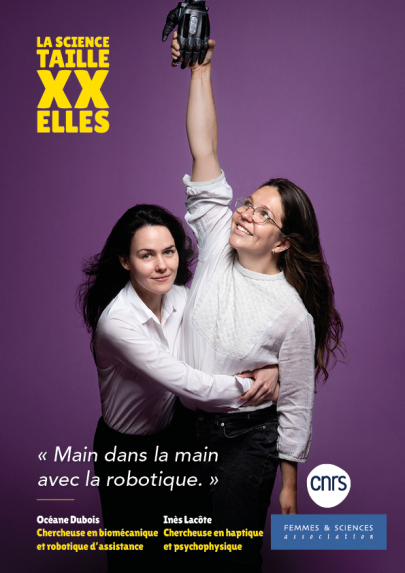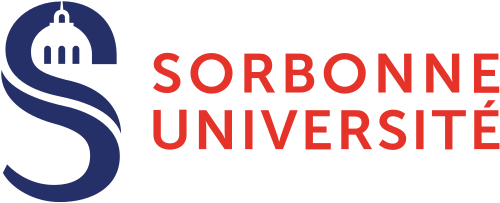The CNRS Paris-Centre and Villejuif delegations, in partnership with the Femmes & Sciences association, are presenting the 2025 edition of the temporary exhibition “La Science taille XX elles”. Among the winners of this new edition are two women researchers from ISIR : Océane Dubois and Inès Lacôte, specialists in human-machine interactions.
On 23 June, the CNRS Paris-Centre and Île-de-France Villejuif delegations unveiled the names of the 21 new “La Science taille XX elles” ambassadors from laboratories, universities, delegations and companies in the Île-de-France region. This initiative, run in partnership with the Femmes & Sciences association, takes the form of a temporary exhibition showcasing women working in research and higher education, and deconstructing the gender stereotypes that prevent young girls from embarking on a career in science.
Among the 21 winners, two are members of ISIR: Océane Dubois and Inès Lacôte, specialists in human-machine interactions.

Océane Dubois works on exoskeletons, mechanical structures resembling armour that are designed not to defend the wearer, but to help them move more easily or carry heavy loads: devices that are particularly useful for people with disabilities or in industry. Originally a computer engineer, she completed her training with studies in biomechanics because she wanted to move away from pure programming and design systems capable of interacting with humans. On a daily basis, she collaborates with doctors and physiotherapists to optimise the control of robots by people with disabilities.
For her part, Inès Lacôte, who holds a master’s degree in advanced systems engineering and robotics, is continuing her thesis research on touch, a sense whose importance is sometimes underestimated, even though it can replace or compensate for the absence of other senses: blind people, for example, can read Braille and navigate with a white cane thanks to their sense of touch. As a psychophysicist, she designs experiments to better understand how touch works and how a person perceives the sensations associated with it, in order to restore autonomy to people with sensory or motor disabilities. She herself is leading a tactile GPS project: a kind of handle that provides directional information to people who are visually or hearing impaired.
Engaged in complementary fields of research, the two postdoctoral researchers share the same goal: to have a positive impact on society. While issues related to disability are a prime area of application, they do not rule out exploring other areas in the future, provided that they remain at the service of humanity.
The exhibition will open on Friday 12 September, followed by a round table discussion and a reception.
Opening programme:
– 6.30pm: Official speeches and tour of the exhibition with photographer Vincent Moncorgé and the ambassadors.
– 7:15 pm: Round table discussion “Women in Science!” moderated by Marie Treibert, science communicator, with the participation of Inès Lacote, ambassador and researcher at ISIR.
– 8:15 pm: Cocktail reception.
Find out more on the CNRS Délégation Paris-Centre website.
Published on 26/06/2025 – Updated on 02/09/2025.



